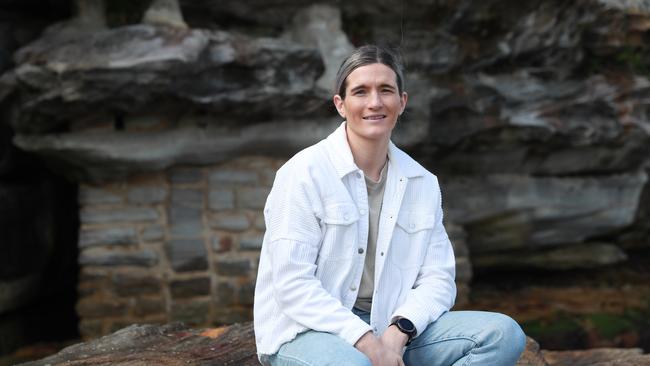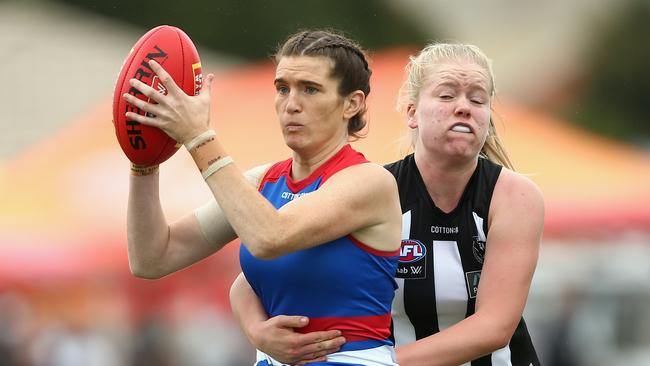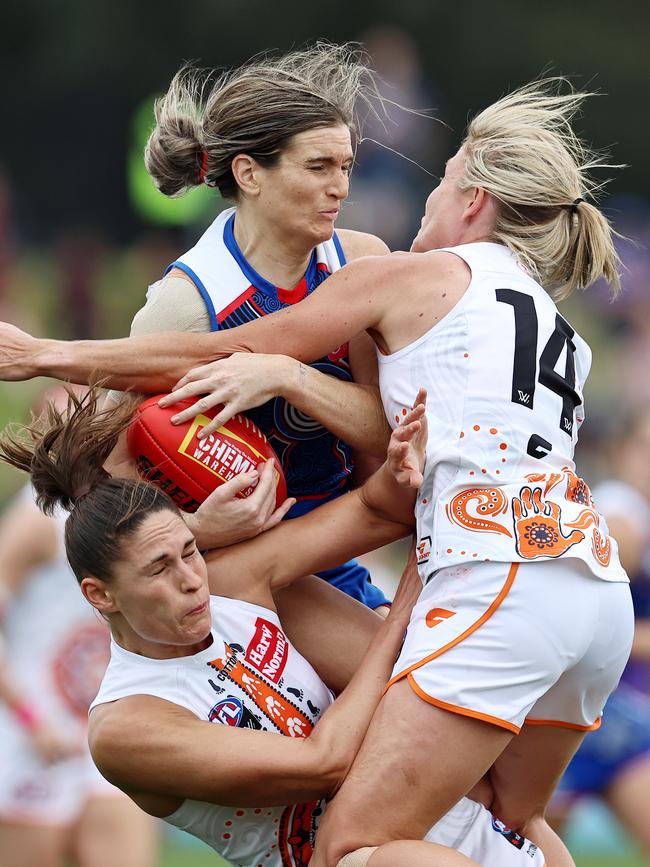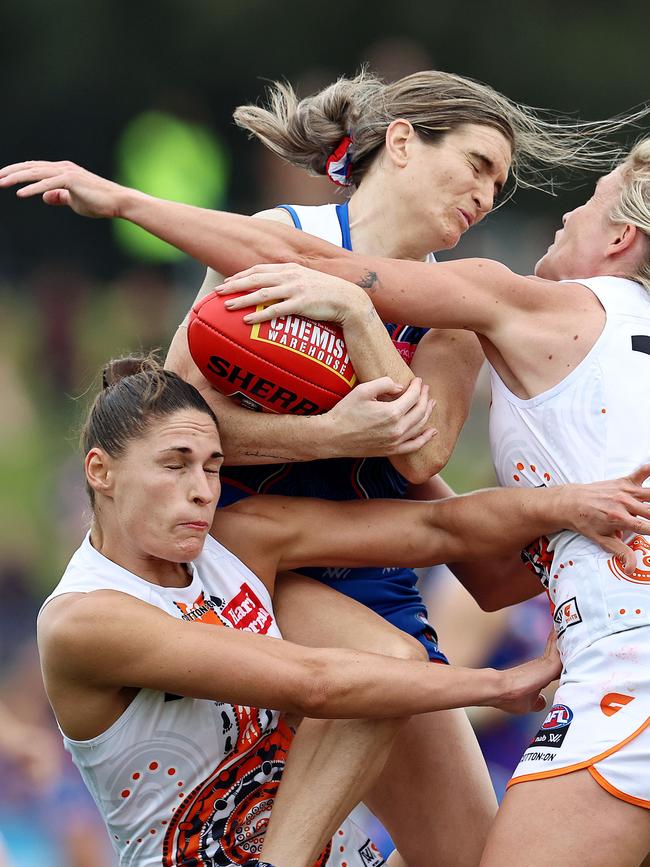Driving 110km/h when concussion symptoms hit
In the second episode of The Australian’s podcast investigation AFLW player Kirsten McLeod opens up on her battle with concussion and one of the most frightening moments of her life.

AFLW player Kirsten McLeod was driving on a highway at 110km per hour, and although she didn’t know it at the time, she experienced the onset of concussion symptoms.
McLeod had fallen awkwardly early in a game in Morwell in eastern Victoria, where she was playing in the lower leagues. Two-hours later it triggered a potentially life-threatening event.
During the game she had landed “funny” on her neck and was dazed. McLeod returned to the bench but was back on the ground after halftime.
But as McLeod was driving home, hurtling down the freeway to Melbourne, the symptoms hit hard, as she explained to NRL great James Graham in Monday’s episode of The Australian’s podcast investigation into concussion.
“I started to lose my vision,” McLeod told Graham.
“I had to try to find my way across (the lanes) to pull over so … I spent just a little bit of the time just on the side (of the road).
“Until I was ready to go again, and then I ended up making it back home, but it was kind of scary.
“I didn’t think that was a symptom and I was pretty good during the game. And then I guess it was just the delayed concussion symptoms, that I just decided to experience on my way home, which no one really speaks about, so it was all new to me but it’s kind of scary.”
This happened to McLeod in 2019, at a time when the AFLW was gaining traction – it remains the most well-funded sports league for women in the country.
McLeod was drafted by the Western Bulldogs at pick number 28 in the inaugural AFLW draft and forged a reputation as one of the league’s most hardworking players.
She speaks about the wrench to play even when she didn’t feel OK.
“You know with concussion that you can be ruled out for quite some time and having had a successful year (previously), I was like I didn’t want to miss any football,’’ she said.
“So I didn’t quite tell any medical staff what was happened driving.
“(If I had my time over) I would have let the doctors know what happened on the way home. I think, playing the game, I was pretty symptom-free apart from obviously the collision.
“You sort of just shake it off. A little bit dizzy, check it off and then continue to go again.
“You just think ‘oh yeah, just a little knock like you get’, like a bump here and there. You go ‘so shall you just keep going’.
“So I would probably, definitely, tell them about the drive home, but maybe being a little bit more aware of it.”
While she had experienced several concussions before the incident in Morwell, it was after that the issue became extremely serious for her.
“It was basically from this (point) where I started to be a little bit more aware of concussions and what it can do to your body in your health and your mental health,” she said.
Following that incident there were head knocks and incidents of “whiplash” in training that sidelined her.

It’s a health issue that has become so serious for her that she was advised to have 12 months off. At the time of the interview with The Australian she hadn’t played a game in 16 months.
McLeod is still hoping to play for the Western Bulldogs this season but admits her footy career is facing uncertainty.
“I’m trying to be, you know, very positive about it but I’m also in the back of my mind I’m like, ‘well, I might not be able to play again so it’s sort of like those two minds where I’m ready to accept it but also not ready to accept it,” McLeod said.
“I think it would be pretty sad to hear it (that I can’t play again), but obviously people make these decisions based on the best outcome for you as a person ... just making sure that you are OK rather than football being the priority.”
An AFL committee has been assessing her health to determine when she can return to play.
McLeod has found over the past 16 months, at times, when she did attempt to return to training she suffered migraines which were often triggered by those sessions.
However, she has been training of late and on the eve of the AFLW season told The Australian she was feeling great.


After going through all this, McLeod’s best advice to fellow athletes is to speak up about symptoms.
“With me, I it took me a little while for my last concussion to really push to say to someone ‘I wasn’t feeling right’ and trying to figure out what the cause was,” she said.
“I pushed to see a neurologist. My message would be speak up and continue to push because it’s your health, your mental health.
“(It’s) everything at the end of the day and it’s extremely important because that can change, you know your future in sport, like for me it’s changed.
“I’ve been out of footy for maybe about 15, 16 months now post my last incident.
“So I just say speak up and get the professional help as well and speak up because it can be a challenging process.
“And you can feel like you’re alone in it, and if you communicate with your friends, the staff, I think that lonely process can sort of disappear a little bit and you feel like you have a bit more support.”
“You’ve got to, you know, tell your doctor what’s going on.
“But I feel like as players, we withhold some of that information because we want to be out there (playing), we don’t want to be sidelined.
“And we just I feel like as players we need to come forward and say it’s OK to take a week off because that week gives your brain time to rest and then it prevents any future damages or health issues, which I’m learning.”




To join the conversation, please log in. Don't have an account? Register
Join the conversation, you are commenting as Logout